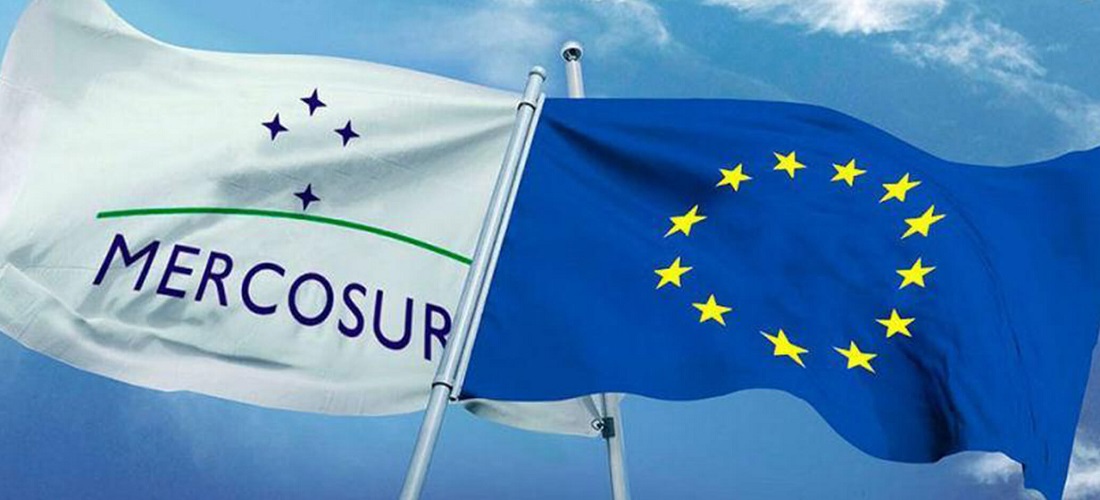
Deforestation keeps hindering the EU-Mercosur agreement despite changes in the scenario
Mar, 10, 2022 Posted by Gabriel MalheirosWeek 202210
On March 9, the European Commission reaffirmed its commitment to move forward with its trade agreements, including the EU-Mercosur agreement, given the current geopolitical context. However, due to the importance of addressing ongoing environmental concerns, mainly deforestation, the negotiations will remain halted for the time being.
Despite Europe’s search for alternative sources of raw materials, a series of tweets published earlier this week showed that the free trade agreement with Mercosur is still contentious to different groups among European politics.
On Tuesday, March 8, while Russia escalated its attacks on Ukraine, Bernd Lange, the president of the European Parliament’s International Trade Commission (Inta), a German social democrat, tweeted that “in the current context of international rules violations and threatened multilateralism, our trade agreements with Chile, Mexico, and New Zealand can serve as stabilizing elements to a rules-based international system.”
Such a comment prompted immediate reactions. Mexico’s ambassador to the EU, Rogelio Granguillhome, enthusiastically retweeted: “I fully agree with you, Mr. Lange! In Mexico, we are ready to sign the modernized Mexico-EU global agreement.”
On the other hand, Emily Rees, director of the consultancy firm Trade Strategies, questioned: “What about Mercosur?”. Emily’s tweet was then retweeted by the European Commission’s Director-General for Trade, Sabine Weyand, with no further comments but reinforcing the question nonetheless. Another EU Trade Director, Rupert Schlegelmilch, one of the main negotiators of the Mercosur deal, also retweeted Emily’s query.
Lange did not respond when asked why he did not include Mercosur in his tweet. His decision, however, comes as no surprise given the Green Party’s position as the leader of the coalition now in power in Germany.
“The president of the European Parliament’s Committee on International Trade has taken a stand against the ratification of the agreement with Mercosur,” says Emily Rees. “At a time when the EU needs to seek partners, such resistance has no ballast with reality since the best way to advance the environmental agenda and fight deforestation is to collaborate with Brazil under the guise of this trade agreement.”
Sabine Weyand, in turn, has never wavered in her defense of the bi-regional agreement. According to the European Commission, the EU-Mercosur agreement is eight times larger than the bloc’s agreement with Canada and four times larger than the one with Japan.
When questioned about the repercussion brought forward by these tweets, the European Commission stated the “EU-Mercosur agreement is of great economic and geostrategic importance as it unites the two regions in partnership and cooperation. A failure to ratify this agreement would be a setback for the EU’s reputation in the region. Besides, the agreement’s success would be beneficial for trading partners such as China and the US. Engagement is better than decoupling.”
That being said, the EU “recognizes its concerns regarding sustainability and environmental issues, in particular deforestation.” Trade Commissioner Valdis Dombrovskis reaffirmed that addressing these concerns is still a priority.
“Therefore, the EU will not proceed with the ratification of the agreement at the moment. We are currently developing an additional instrument to address these concerns to follow up with the agreement. The objective is to bring more clarity and details about the commitments of both parties”, he added, stressing that Mercosur must work on its environmental commitments. The EU should have presented its demands to re-ignite negations last year. However, the proposal is still being elaborated by the bloc.
For the EU, this would be part of a package of measures aimed at addressing sustainability concerns under its European Green Deal objectives, “including autonomous EU measures on deforestation and the recently proposed ‘due diligence’ [which prohibits imports of six commodities, including beef, soy, and coffee, if they come from deforested areas], as well as bilateral cooperation.”
According to Brussels, “having an agreement means having powerful tools to engage Mercosur in global debates ranging from climate change and biodiversity to labor rights.” This provides us with an important additional platform to promote Mercosur improvements in these areas. In other words, we’re better off with this deal than we would have been without it.”
Many assessments have found that the Europeans are waiting for the presidential election in Brazil. Oher private-sector sources point out that the two of the last presidents to visit Moscow before the war were Argentina’s Alberto Fernández and Brazil’s Bolsonaro.
In his conversation with Putin in Moscow, Fernández offered Argentina “as Russia’s gateway to Latin America. Bolsonaro, for his part, told Putin that he was in solidarity with Russia but did not elaborate. Then, amid Russian attacks in Ukraine, he designated Brazil as “neutral.”
Source: Valor Econômico
To read the full original article, please go to:
-
Ports and Terminals
Dec, 06, 2023
0
Studies Reveal Inland Navigation Could Boost Port of Santos Efficiency
-
Meat
Nov, 10, 2020
0
Brazil advised to diversify pork export markets to depend less on China
-
Blog News (ENG)
Mar, 28, 2024
0
Argentina takes over Brazil’s share in the corn market, says analyst
-
Other Logistics
Dec, 18, 2023
0
New road project to ease cargo flow bottlenecks at the Port of Santos


